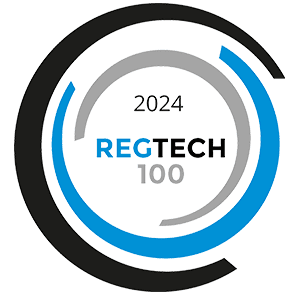On February 5th, the vice president and associate general counsel at FINRA, James Wrona, said that, “…the next round of exams… [will] look a little more closely” at the efforts of broker-dealers to protect their elderly clients from financial abuse and exploitation. This comes after an ever-growing flood elderly financial abuse cases from all over the country that cost victims at least $2.9 billion a year and affects roughly 5.2% of the nation’s elderly population.
According to the U.S. Census Bureau, an average of 10,000 Americans are turning 65 every day, and that trend has no sign of stopping until 2030. By that time, one in five Americans will be over age 65. Thanks to increasing medical advancements, the fastest growing segment of that population will be baby boomers over 85 years old. With age comes an increased risk of cognitive decline. By age 65, 15-20% of persons over 65 will have some form of mild cognitive impairment, which may progress into Alzheimer’s or some other form of dementia. By age 85, the risk dramatically increases with roughly half of individuals diagnosed with Alzheimer’s or some other form of dementia.
As fiduciaries, it is imperative that you analyze information necessary to determine what kinds of investments are suitable for your client’s particular situation. This includes information such as their age,investment objectives, risk tolerance, net worth, etc. However, it becomes increasingly difficult to make those determinations when your client is subject to progressive cognitive decline. It is worth noting that not all forms of intelligence degrade at the same rate, an elderly person’s “crystalline intelligence”, or knowledge of a particular topic, may remain intact for far longer than their “fluid intelligence” or their ability to reason and make rational and sound judgements. This may lead to a client who sounds knowledgeable about their financial circumstances and goals but behaves in an irrational manner that is uncharacteristic of someone with their needs. These are some of the red flags that you should look out for when evaluating the suitability of an elderly client.
Their decline in cognitive ability, coupled with a lifetime of savings, is what makes elderly clients such an attractive target for scams, identity theft, and other forms of financial abuse. One of the more common scams is for a scammer to impersonate victim (or the victim’s child or grandchild) who needs cash for an emergency. Other common scams include sweepstakes scams, lottery scams, computer scams, romance scams and more. New methods of defrauding the most vulnerable among us arise daily. To help combat these scams, FINRA has introduced two model rules that may help members take action against the financial exploitation of seniors: FINRA Rule 4512 and Rule 2165.
Rule 4512 requires members to take reasonable efforts to obtain the name of and contact information for a trusted contact person upon the opening of a non-institutional customer’s account or when updating account information for a non-institutional account. The trusted contact person is intended to be a resource for the member in administering the customer’s account, protecting assets and responding to possible financial exploitation.
Rule 2165 permits, under FINRA rules, a member that reasonably believes that financial exploitation has occurred, is occurring, has been attempted or will be attempted to place a temporary hold on the disbursement of funds or securities from the account of a “specified adult” customer. Specified adults include a natural person age 65 and older or a natural person age 18 and older who the member reasonably believes has a mental or physical impairment that renders the individual unable to protect his or her own interests.
Given the rampant financial abuse that has already take place and expected increase in abuse in the future, the adoption of such measures is necessary to help safeguard our nations growing elderly population. If you have any questions or concerns about how you may enact the rules above, please contact Red Oak today.
If you or anyone you know has any reason to suspect elderly financial abuse, please call the Senate Aging Committee’s toll-free Anti-Fraud Hotline at 1-855-303-9470.
See the following for more information:
www.finra.org/industry/senior-investors
www.sec.gov/files/elder-financial-exploitation.pdf
www.investmentnews.com/article/20190205/FREE/190209978/finra-exams-to-probe-compliance-with-elder-abuse-rules






